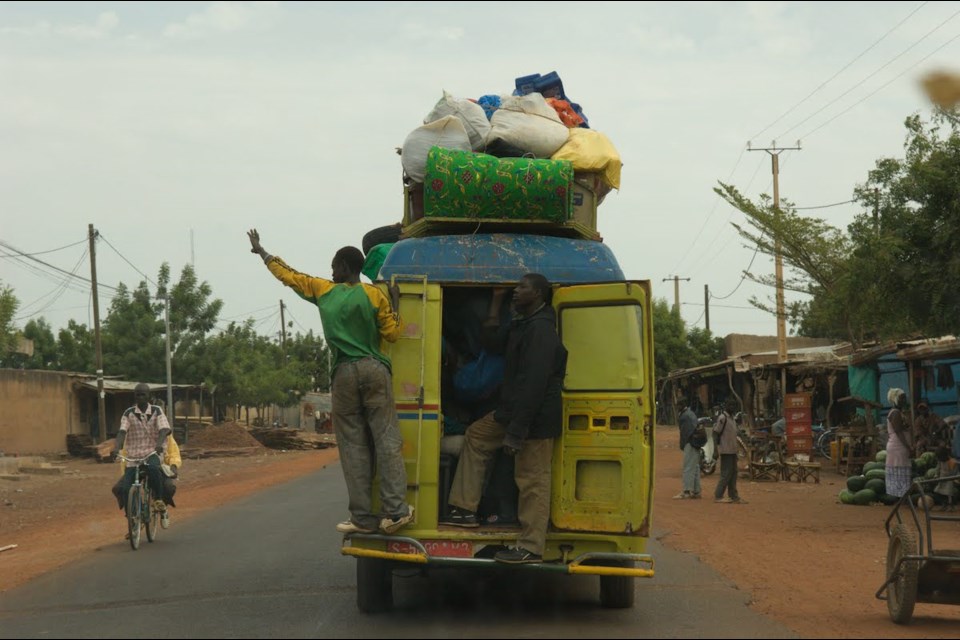As I write this, I happen to be in Calgary for a few weeks. It got me thinking that it’s that time of year when young people and adults start heading out for international travel. Around the Guelph Wellington region, I know of at least three groups heading to exotic locations on volunteer trips to help build schools or homes overseas. Other folks are touring Europe. It seems like a good time to share a few of my personal travel tips, gained from hundreds of overseas trips.
Some years back, I wrote an article about avoiding travel trauma—see Mercy Traveller June 10, 2016—in which I focused on your mindset for cultural differences. Today I’ll open up my suitcase and unpack a few of the items I take along that you may not think of.
What you take is critical for enjoying your trip and of course it will depend on where you are going. I’ve taken countless trips to developing counties. Even if you are staying in 5-star hotels, this list is for you. It is especially for you if you are heading to Africa, Asia or Latin America.
Here’s my list:
• My trusty multi-tool. It’s pliers, a knife, a screwdriver, and who knows whatever else all in one. DO NOT carry this in your carry-on. The weekend after 9-11, I learned this the hard way in Amsterdam. It was instantly thrown into the trash by the security folks. I bought another back home!
• I’m probably known for having a light cotton scarf around my neck whenever I travel. If you are cold it keeps your neck warm in Afghanistan, if you’re hot it keeps your neck dry and out of the sun in Mauritania. It’s a pillow on a train crossing India, it’s a hand towel, it’s an eye cover to take a nap, it’s a face mask to keep from breathing dust in Sudan or a cover for your nose to reduce breathing tear gas during riots in Jakarta. I’ve used it for all that and more. Pick a colour that does not show dirt!
• When I started travelling, all we had for communication was telex. Today an unlocked cell phone is mandatory. Note that carriers cannot charge you to unlock your device any more. You can buy a sim card and airtime for about $20 when you walk off the plane. I buy local plans (not international plans) from Canadian providers. It’s better for my in-country friends. But this may depend on the nature of your trip. If you are using a phone to take photos, ensure that you are backing up those photos to the cloud over wi-fi that is available in most places. There are many ways to do this free while travelling.
• While we are on the topic of mobile phones, I’d suggest downloading the WhatsApp messenger program for staying in touch. This has become the standard for locals in many countries. It enables phone calls, texting, and the sending of recorded voice messages, which is handy when Internet connections are weak. It only requires data, which you can buy separately in most counties and is inexpensive. WhatsApp also works over wi-fi, of course. Your local hosts are guaranteed to be using it already for communication.
• Pack two new syringes. If you or one of your team needs a needle for an emergency in a developing country, it is wise to use your own.
• Bring two photocopies of your passport. Place one in your carry on, and one in your checked bag. And while you are at it, take a photo of your passport details with your Smartphone and email it to your family back home.
• Consider buying some quick-dry shirts and undergarments. Many of my friends use these. They can be a bit pricey but you want something than can wash and dry overnight. This reduces the need to carry extra clothing.
• Place items in various sizes of zip lock bags to help keep dust out and to keep things like electronics, toiletries, pills and documents separate. There’s nothing worse than digging through your suitcase looking for tweezers or a phone charge cord.
• Pack a small bundle of zip ties or cable ties. I’ve used these to hold bumpers on cars, temporarily repair sandals, lock my luggage and repair lots of things that won’t hold together in places where stuff gets broken. They are simple, light and economical.
• Purge your wallet. Remove your Costco card, Guelph library card, Blockbuster video card from 2006 and all the stuff that you don’t need to carry around the world and possibly lose.
• My final suggestion is simplest of all. Before you start packing, make a list of everything you will be taking. If you’re organized you probably already do this. This avoids the airport panic that you forgot some item. I keep a standard list of absolutely everything. I update it as needed, tape it to the back of my door and cross out items as I toss them in my suitcase.
The interesting thing about travel is that you may go to learn about another place, but you end up understanding much more about your own.
Happy trails.
